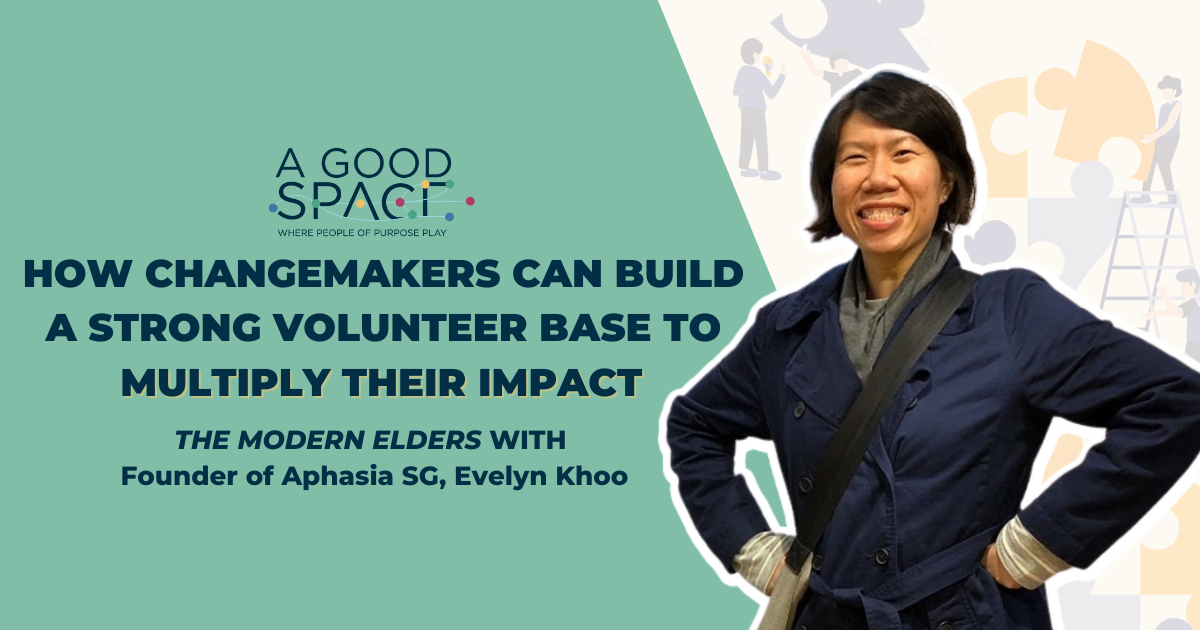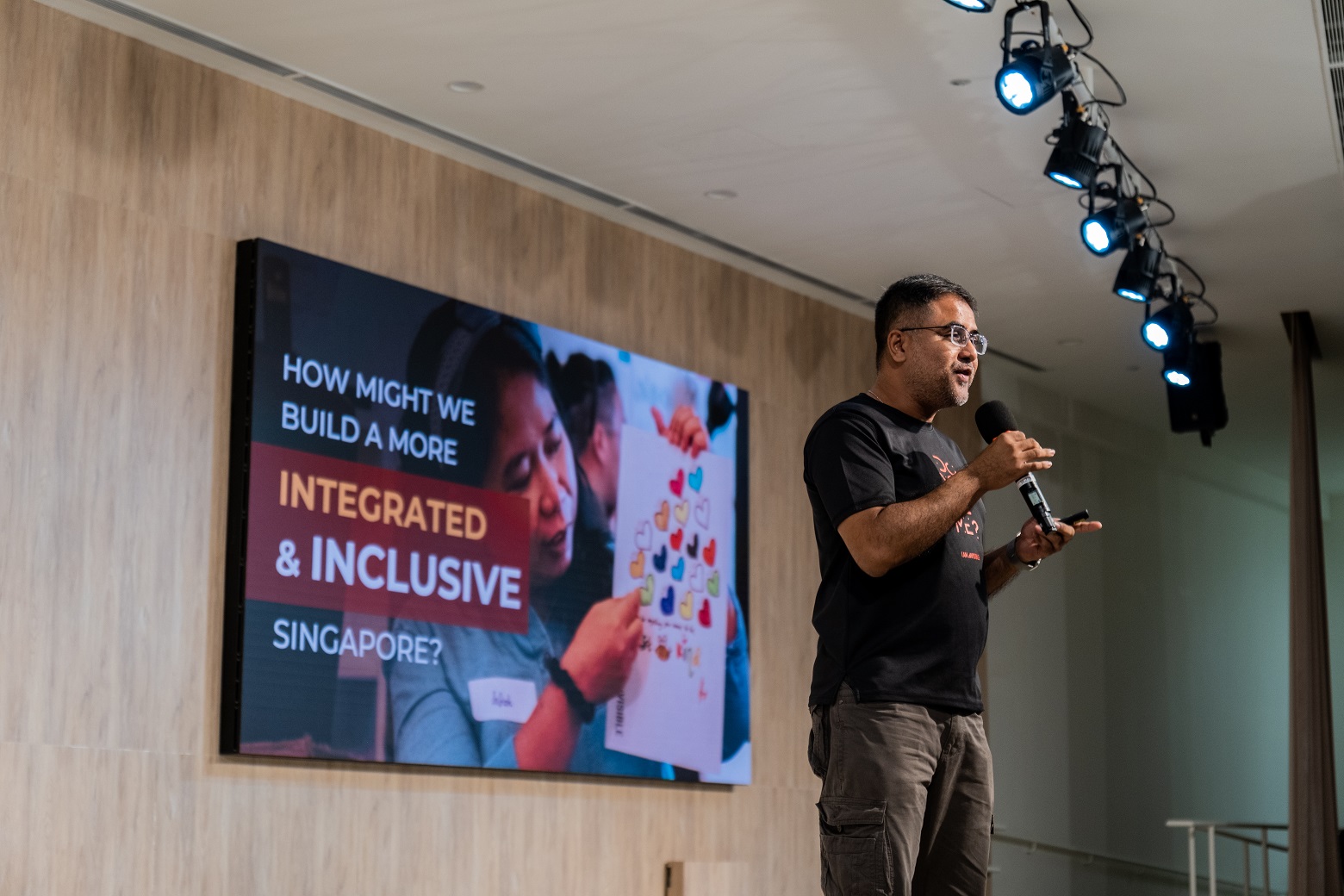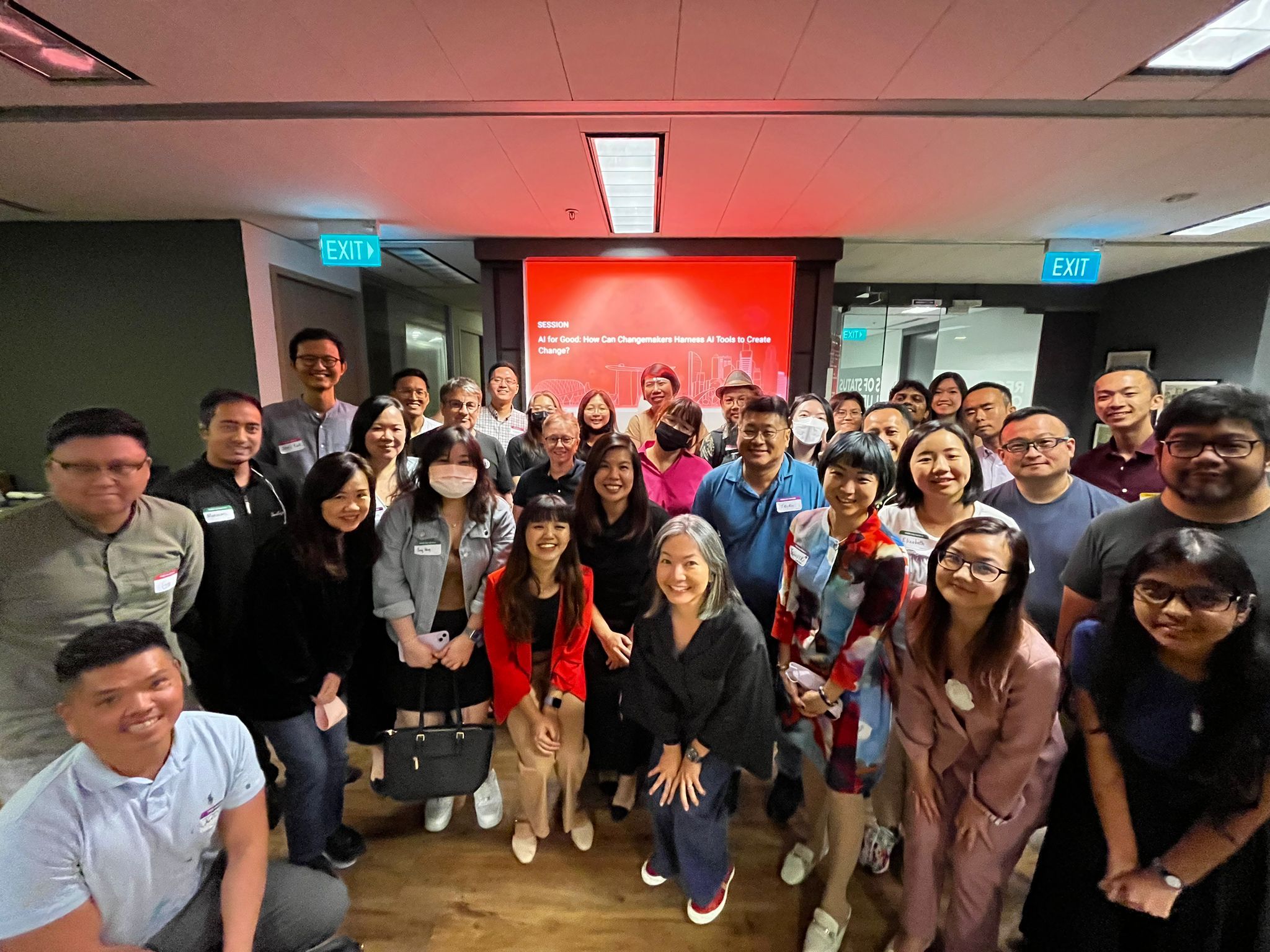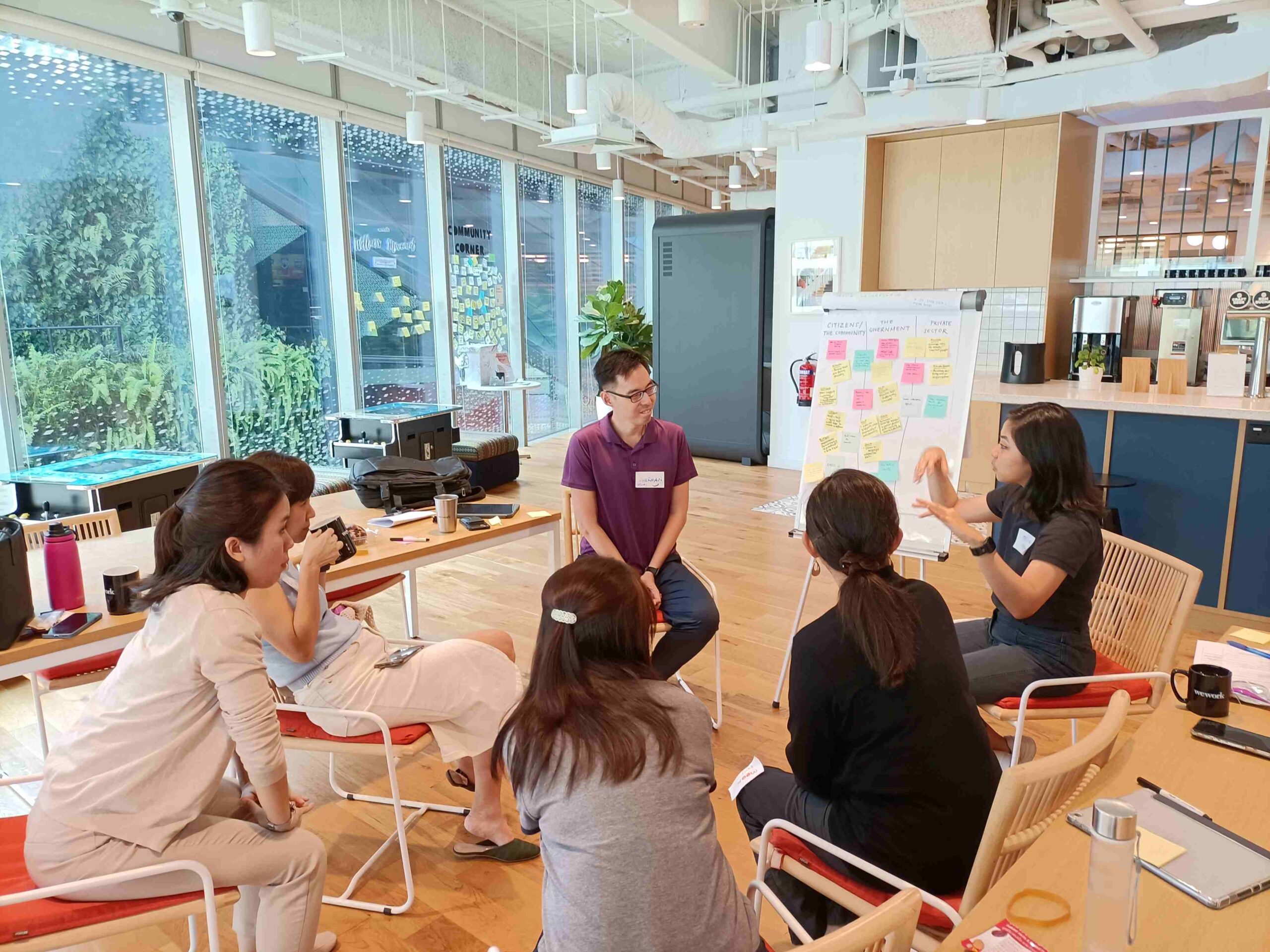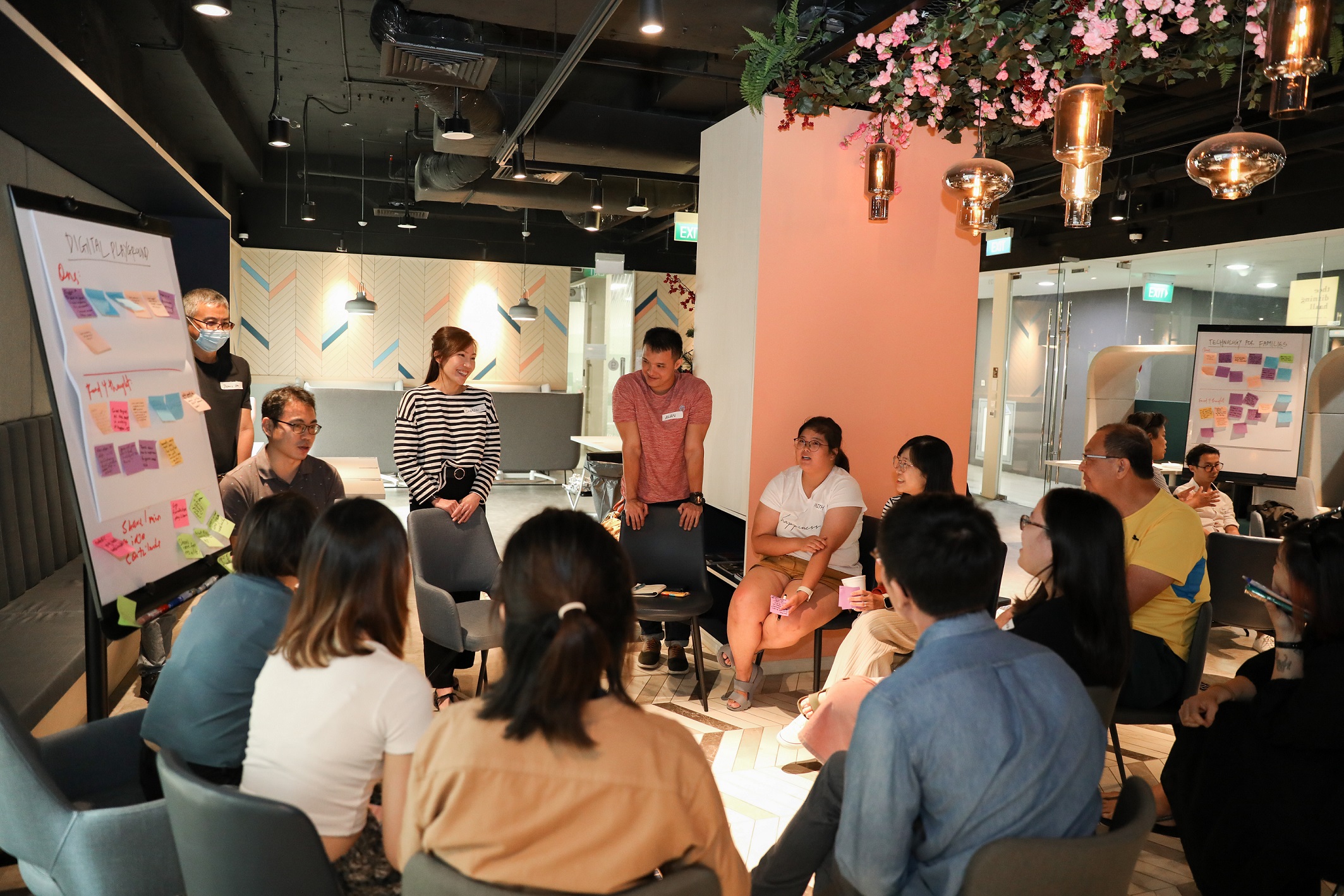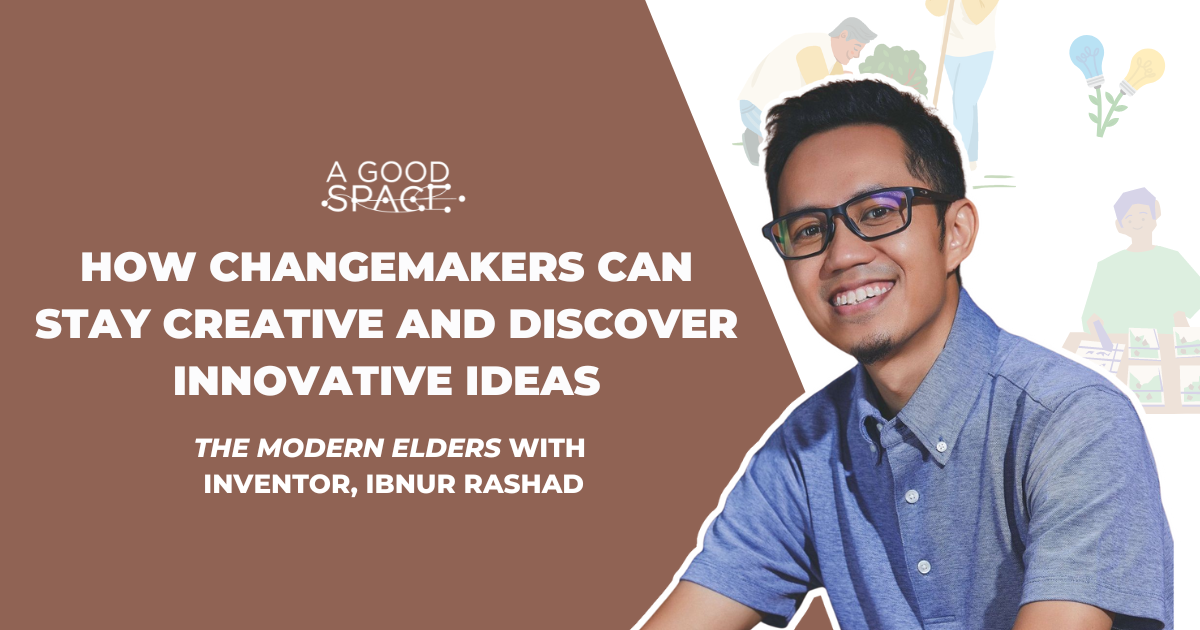People are at the heart of any initiative – and they can play a myriad of roles to build an organisation’s capacity to operate efficiently and sustainably.
A particularly formidable group of people that could really propel a group to new heights are volunteers.
From packing and distributing food, to creating content, to facilitating well-being programmes, ground-ups have a lot to gain from investing in an effective volunteer programme.
With that being said, we understand the struggle of successfully recruiting and managing volunteers, especially if the internal team is lean and already stretched with other pressing tasks.
I thought this was the perfect opportunity to reach out to one of our founding members, Evelyn Khoo who founded the volunteer-run NPO, Aphasia SG to ask her for tips on how to recruit volunteers, sustain their interests, and deal with volunteer drop-out!
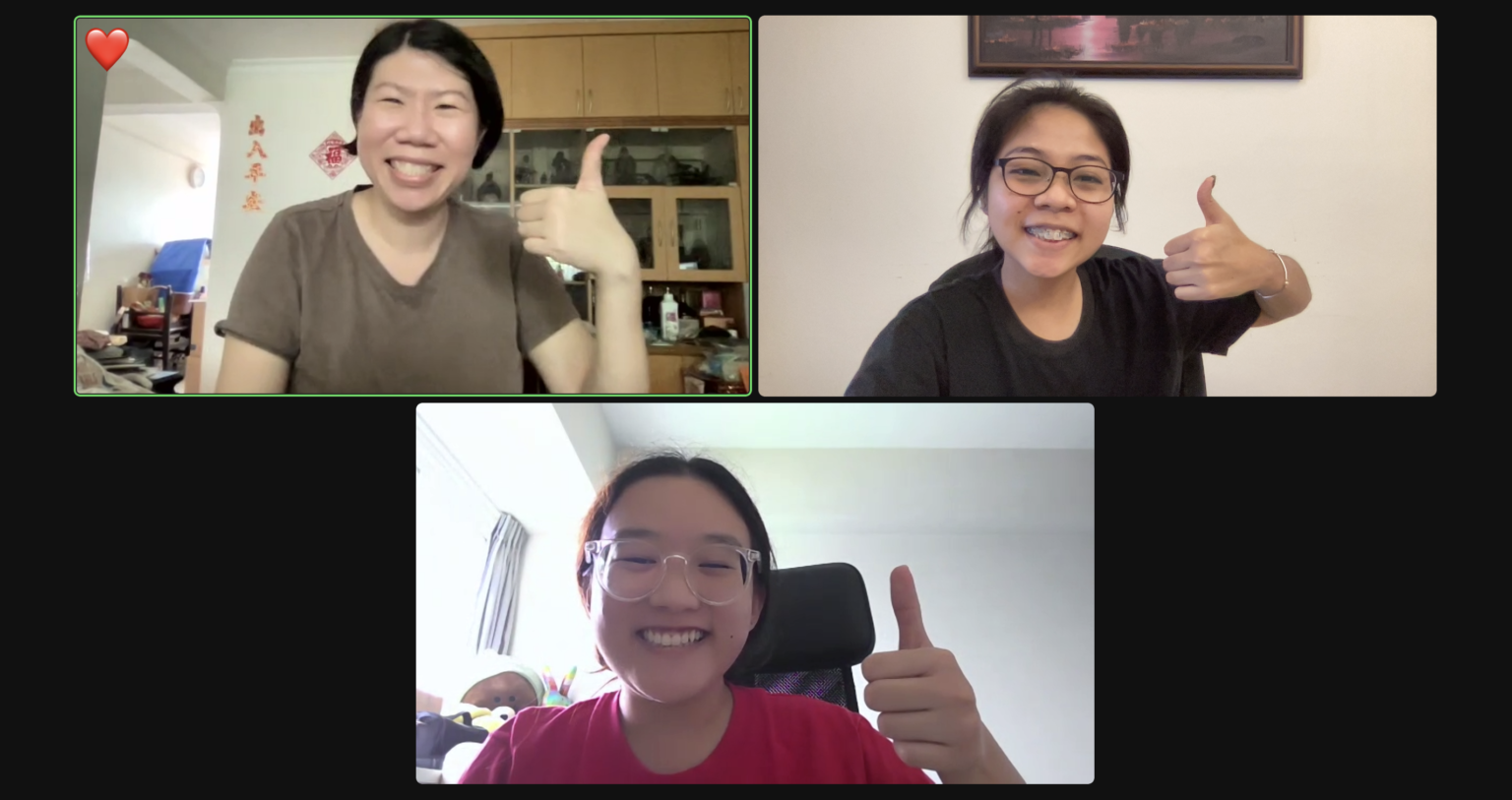
Recruiting volunteers
Though volunteers may be an extremely important and valuable group of people, where exactly can you find them, or how can they find you?
Media recognition
Evelyn shared that media mentions have been extremely beneficial in sending potential volunteers their way.
We have another Modern Elders article on how changemakers can gain more media attention – read it here!
You could use key events to centre your marketing efforts! For example, Aphasia SG ramps up their outreach in June, which is aphasia awareness month. This tends to cause a spike in interest, which then translates to higher volunteer signups!
Complete the recruitment process
Have an onboarding system in place to ensure that these signups get converted into confirmation.
At Aphasia SG, this includes a quick meeting to introduce what aphasia is, what Aphasia SG does as an organisation and what the commitment would look like.
From there, they can lock in people who are willing and ready to dedicate their time to the cause.
Sustaining and managing volunteers
So you’ve got a group of interested and passionate people willing to help your cause!
Now comes the hard part – sustaining their interest and ensuring their commitment.
Show appreciation
This is a standard but extremely effective way to remind your volunteers that you remember them and value the time and energy they have devoted towards the cause.
And find different ways to honour them! This could be through accolades or sending them goodie bags.
Although they weren’t able to do anything grand last year, Aphasia SG still made it a point to give out certificates to volunteers who have demonstrated exemplary commitment and dedication.
Keep everyone in the community updated
Evelyn has found that keeping the community up to date about the latest Aphasia news is another effective way to keep interest going.
Whether it’s about celebrities like Bruce Wilis retiring because of aphasia, or an article illustrating the complexities of living with the condition that features one of the members, these updates serve as positive reminders of the tangible importance and commission of the work that they do.
Invest in building this community
Relationship building is a core part of Aphasia SG.
It’s easy to treat these volunteers as just that – as people who are there just to lighten your burden for a while. However, not taking the chance to get to know them as human beings is a missed opportunity in Evelyn’s view.
After all, it is through deeper friendship-forming that longer-term commitment can develop. Because then, as Evelyn put it, “you are no longer doing this for yourself, you’re doing this for other people as well!”
Although volunteers might have signed up because of an interest in aphasia or studying speech, music or occupational therapy, they stay for the people.
Think about having social gatherings and movie screenings to create opportunities to bond.
Evelyn told us about a man who signed up as a volunteer late last year. She just recently found out that he used to have a stutter and wanted to give his time to Aphasia SG to support other people who face communication problems. And he’s been a regular volunteer!
Look out for volunteers whose passion and goals align with your organisation
Another benefit of getting to know your volunteers on a deeper level includes finding out what they care about, their skill sets and their strengths. Ultimately, this could also lead to a better alignment of roles and responsibilities.
Providing training is a time-consuming process and in many organisations, there is always an uncertainty about whether or not these volunteers are committed and will stay on with the organisation after receiving this training.
That is why it is important to distinguish the volunteers that are more serious about their role in the organisation.
Evelyn mentioned how members of the core team look out for volunteers who:
- Have a higher aptitude for facilitation – they demonstrate patience and empathy to try and facilitate conversations with PWA for themselves
- Are curious and keen to make friends and understand more about aphasia
- Were more diligent about their commitment by showing up consistently – and this is a big plus!
They started training volunteers from there. And the return on investment will be beneficial once volunteers are properly equipped to lead and facilitate programmes autonomously!
This was the case in Aphasia SG, where, because the core team consisted entirely of healthcare professionals, being frontline workers during the pandemic made it very difficult for them to spend time volunteering.
And it was the new volunteers, those who weren’t trained as speech therapists, who stepped up to do more!
Be clear about volunteer roles
This could change from time to time, depending on the needs of your organisation.
For instance, Aphasia SG started as a Chit Chat Cafe. Then, their central aim was to provide a support network for persons with aphasia (PWA) and their caregivers in Singapore. To ensure this, they required people who were already used to seeing patients on a daily basis.
Therefore, their volunteer profile was entirely skills-based and their group was almost exclusively made up of speech and language therapists (SLT), social workers or counsellors.
However, after receiving several media mentions that led to heightened interest, they were approached by members of the public without such training.
Evelyn mentioned how in-person Chit Chat Cafes could accommodate 20-30 volunteers who could be doing a variety of things that were significantly less confrontational, from making coffee, to ushering and doing other backend roles like marketing and events management.
But when their events moved online during the pandemic, Evelyn admits that the jobs for untrained volunteers are limited.
Remember that these volunteers are not under contract
The pandemic has undoubtedly taken a toll on relationship building amongst volunteers and Evelyn has observed how that has affected the volunteers, particularly the newer ones.
This lack of connection coupled with the online nature of events has made it that much easier for volunteers to drop out if they want to.
Evelyn talked about their student volunteers who are unable to commit during certain months because of exam or submissions period; or the four members in their core team that recently became mothers!
When I asked how Evelyn deals with volunteer dropout, she candidly said, “It’s fine! These things happen. The nature of volunteering is as such, right? Especially since there is no contract.”
To her, every volunteer is giving their time, energy and knowledge without any remuneration. With that being said, if they say they want to volunteer, the hope is that this is genuine.
She also returns back to Aphasia SG’s core missions, one of which is to raise awareness about the condition. “Every time a new person shows up, a new person learns more about aphasia – and that’s a win!”
In summary
In short, appreciate your volunteers and let them know that you don’t take their time for granted, get to know them as people and let that guide the roles, responsibilities and training they receive.
Hopefully this article has given you some actionable steps to leverage the time, skills and networks of your volunteers to increase capacity, achieve outcomes, and drive social change.
Do you have tips of your own on how to recruit and engage volunteers for changemaking? We’re always learning here at A Good Space, so drop us a comment if you do – our community of changemakers would love to hear them!
This is part of a series we have called The Modern Elders, where we invite seasoned changemakers across various issues and communities to share their experiences and impart their changemaking wisdom to other budding changemakers.
Through these articles, we hope to create a repository of wisdom that anyone with a heart for social issues can learn from and go on to do more for the communities and issues they care about.
If you enjoyed what you read, consider subscribing to our newsletter for updates whenever we post an article, on top of getting some exclusive ideas, events and opportunities to create social change!
If you are curious to learn more about the A Good Space community, learn more here: bit.ly/agschangemakers!

Sin Melia
Melia is a Digital Marketing Trainee at A Good Space. She is a big fan of mother nature, tiger balm and food tiktok. You can probably find her somewhere over-analysing a TV show or K-drama.

